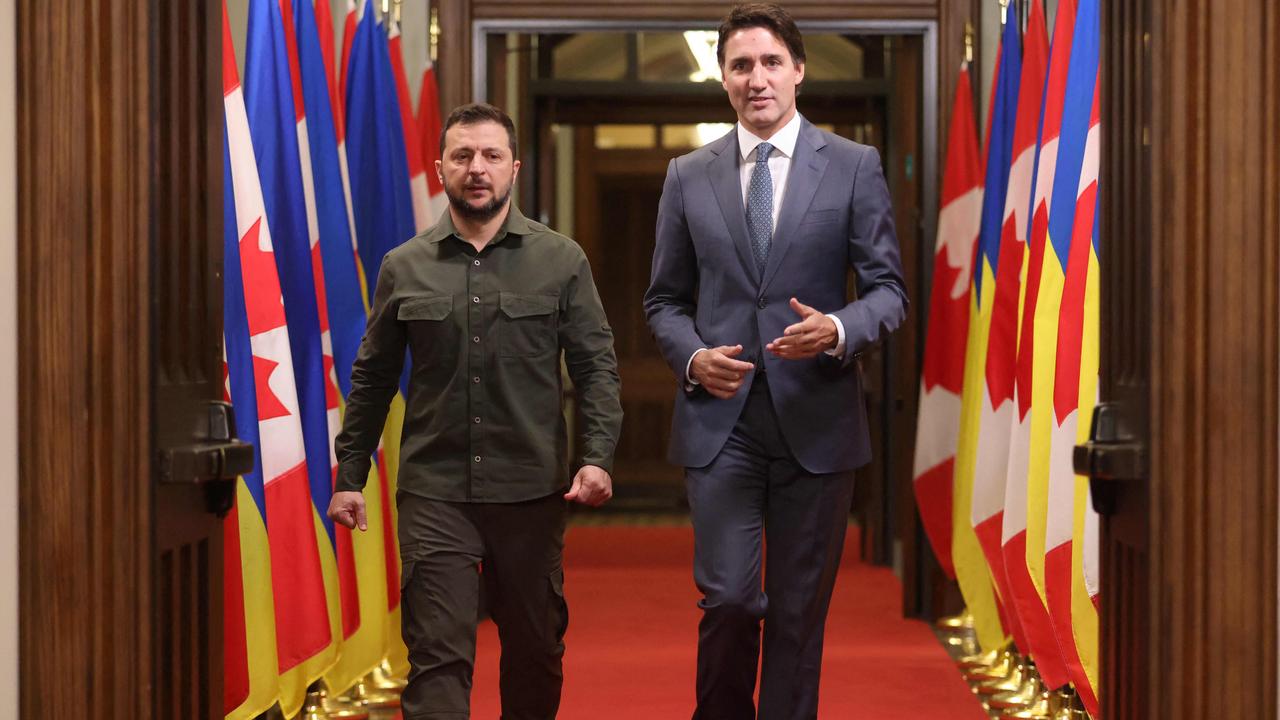Zelensky’s Ottawa Visit Gave Russian Propaganda a Boost
In the realm of international politics, every word, gesture, and action carries significant weight, often far beyond what might have been intended. Such was the case during Ukrainian President Volodymyr Zelensky’s visit to Ottawa, Canada, where an inadvertent misstep led to the unintended praise of a controversial historical figure. This incident not only generated a political firestorm but also provided Russian propaganda with a new opportunity to exploit divisions and sow discord. In this article, we will explore the details of this incident, its implications, and the broader context in which it unfolded.
The Visit
In July 2023, President Zelensky embarked on an official visit to Canada to strengthen bilateral ties and garner support for Ukraine’s ongoing struggle against Russian aggression. This visit was highly anticipated, as Canada had been a staunch supporter of Ukraine in its efforts to defend its sovereignty. However, what was meant to be a diplomatic success turned into a diplomatic blunder that inadvertently bolstered Russian propaganda.

During his visit to the Canadian Parliament, President Zelensky delivered a heartfelt speech in which he expressed his gratitude for Canada’s unwavering support for Ukraine. However, it was a seemingly innocuous statement that would become the focal point of controversy. Zelensky remarked, “We stand united against aggression, just as our nations did during World War II.”
The Historical Context
The unintended controversy surrounding Zelensky’s statement stems from the fact that it was interpreted by some as an inadvertent praise of Stepan Bandera, a historical figure who played a significant role in Ukraine’s struggle for independence during World War II. Bandera’s legacy is a contentious one, as he led the Organization of Ukrainian Nationalists (OUN), which included factions that collaborated with Nazi forces during the war in their fight against Soviet rule. This historical association has made Bandera a divisive figure, with some viewing him as a hero of Ukrainian nationalism and others as a symbol of collaboration with Nazi forces.
Political Backlash
As news of Zelensky’s statement spread, it ignited a political firestorm in Canada and beyond. Some Canadian politicians and activists criticized the Ukrainian president for his apparent praise of Bandera, arguing that it overlooked the complexities of his legacy. Others argued that the misstep was blown out of proportion and that Zelensky’s intention was not to endorse Bandera but to highlight the resilience of the Ukrainian people during World War II.
Russian Propaganda’s Field Day
The incident provided Russian propaganda with a new narrative to exploit. Moscow wasted no time in framing Zelensky’s statement as an endorsement of Bandera and, by extension, an attempt to downplay Ukrainian collaboration with Nazi forces during World War II. Russian state-controlled media outlets amplified the controversy, using it to cast doubt on Ukraine’s commitment to fighting fascism and to further their narrative that Ukraine is riddled with far-right extremism.
The Broader Context
The unintentional praise of Stepan Bandera during Zelensky’s Ottawa visit underscores the challenges that leaders face when addressing historical figures with complex legacies. It also highlights the extent to which geopolitical rivals like Russia are poised to exploit any perceived weakness or misstep. In the broader context of the ongoing conflict in Eastern Ukraine, Russia has consistently employed disinformation and propaganda tactics to shape international perceptions of the conflict and undermine Ukraine’s image on the global stage.
President Zelensky’s visit to Ottawa was intended to strengthen ties between Canada and Ukraine. However, an unintended misstep in his speech inadvertently led to the praise of a divisive historical figure, Stepan Bandera. This incident, seized upon by Russian propaganda, provided Moscow with another opportunity to cast Ukraine in a negative light. It serves as a stark reminder of the importance of careful diplomacy and the need to be cognizant of the historical sensitivities that can be exploited in today’s information-driven world of international politics. In an era where the lines between fact and fiction are often blurred, political leaders must exercise caution and precision in their public statements to avoid inadvertently feeding the propaganda machine of their adversaries.
